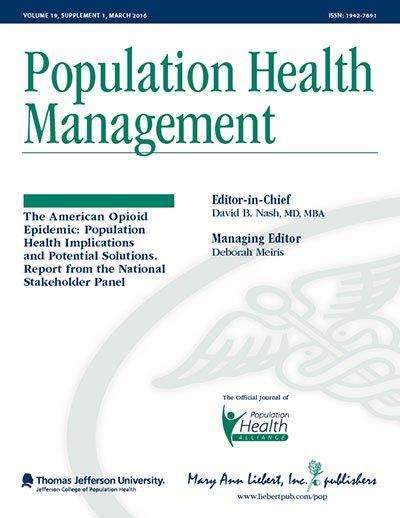Credit: Mary Ann Liebert, Inc., publishers
More than half of patients with high hospitalization rates (at least 3 inpatient visits in a 12-month period) used food pantries or other community food resources, and 40% were worried that they would run out of food, according to the results of a study published in Population Health Management.
The article "Food Insecurity in Patients with High Hospital Utilization" reports that 30% of hospital "super-utilizers" are food insecure and another 25% are only marginally food secure according to the U.S. Department of Agriculture's definition of food insecurity. Etienne Phipps, PhD and coauthors from Einstein Healthcare Network and Treatment Research Institute (Philadelphia, PA) and International Society for Pharmacoeconomics and Outcomes Research (Lawrenceville, NJ) also found that among the super-utilizers, most of whom were hospitalized 5 or more times in 12 months, 75% were unable to shop for food on their own and 58% were unable to prepare their own food.
"Food insecurity has a significant impact on health outcomes, particularly for people with conditions like diabetes, hypertension, and renal disease. This study offers important insights for healthcare providers who are working to help vulnerable populations avoid hospitalizations," says Editor-in-Chief David B. Nash, MD, MBA, Dean and Dr. Raymond C. and Doris N. Grandon Professor, Jefferson College of Population Health, Philadelphia, PA.
More information: Etienne J. Phipps et al. Food Insecurity in Patients with High Hospital Utilization, Population Health Management (2016). DOI: 10.1089/pop.2015.0127
Provided by Mary Ann Liebert, Inc





















